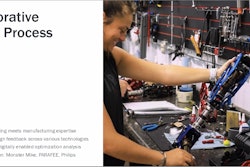
A recent Michigan News article discussed a new development from University of Michigan that people are calling the “EpiPen for spinal cord injuries.” When trauma occurs in the body, an immune response sends cells to the damaged area to clear debris and begin the regenerative process. However, the central nervous system contains a blood-brain barrier that prevents immune activity from infiltrating the damaged area. A spinal cord injury breaks that barrier, resulting in immune cells flooding the area and creating too much inflammation. This damages the neurons and forms scars that prevent regeneration of nerve cells, leading to paralysis and loss of sensation.
To combat this, researchers at University of Michigan have created nanoparticles that intercept immune cells on their way to the spinal cord and prevent them from reaching the injury. The cells that do reach the spinal cord are altered to be more pro-regenerative. Fewer immune cells at the site of trauma means less inflammation and tissue deterioration, which gives the body a chance to heal and resume normal function.





















